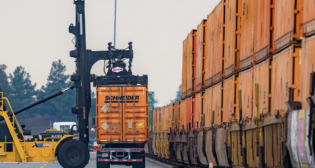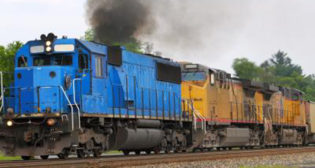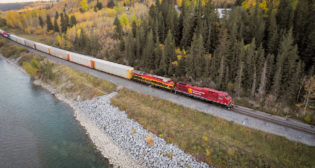
Unions to NMB: Release Us From Mediation
Written by Marybeth Luczak, Executive Editor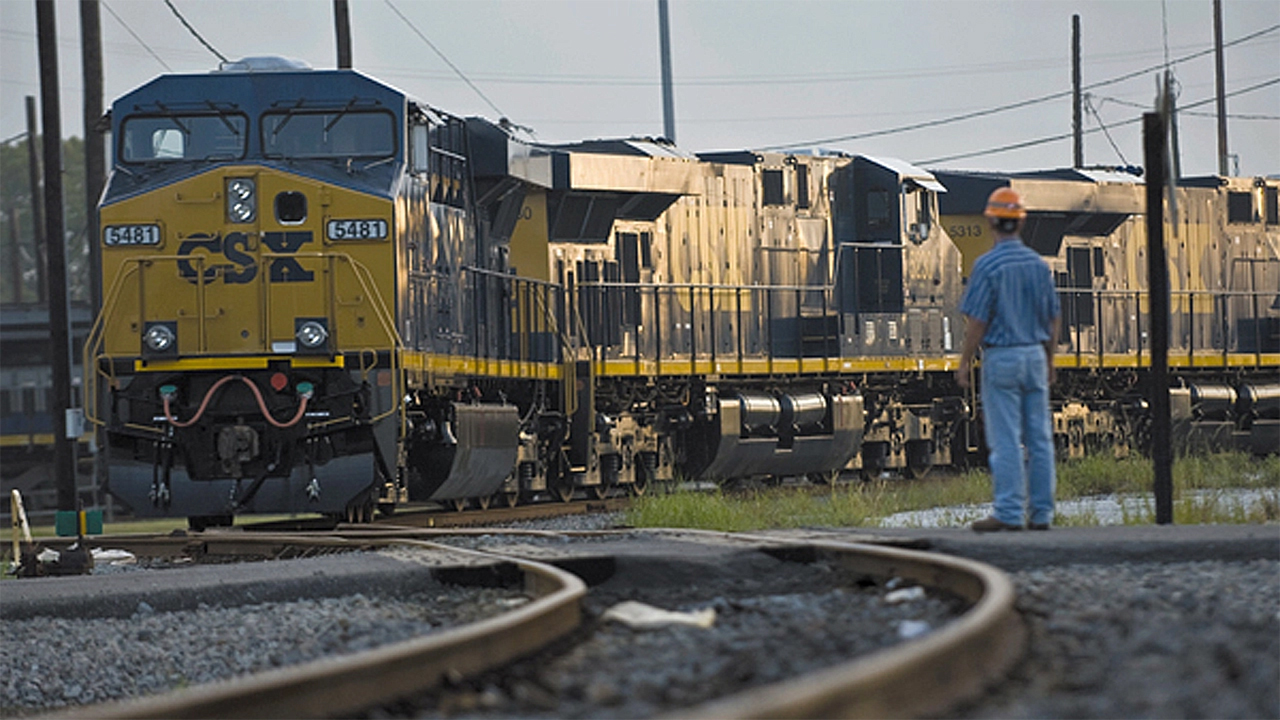
The BMWED/SMART-Mechanical Division bargaining coalition late last month petitioned the National Mediation Board (NMB) for a proffer of arbitration, requesting to be released from further mediation sessions with the National Carriers Conference Committee (NCCC); the Coordinated Bargaining Coalition unions support the move.
The bargaining coalition—comprising the Brotherhood of Maintenance of Way Employes Division of the Teamsters Rail Conference (BMWED) and the Mechanical Division of SMART (International Association of Sheet Metal, Air, Rail and Transportation Workers Union), which represent some 25,000 workers—made their request to the National Mediation Board via letter (download below), noting that they were at impasse and that further mediation would not likely result in agreement.
The letter, dated Feb. 23, 2022, explained that the unions “made a comprehensive settlement proposal to the NCCC [—which represents all U.S. Class I railroads and many smaller freight and passenger lines—] in June of 2021, and the NCCC has never responded with a comprehensive proposal of its own. NCCC has not even made a wage proposal to BMWED and SMART MD; NCCC has refused to even offer a proposal on compensation despite surging inflation and the lack of a pay increase for employees of the carriers for over two years. However, the carriers have made proposals for changes in the National Health and Welfare plan that would constitute employee concessions, after concessions on health and welfare benefits were made in the three prior rounds of bargaining. The current proposed concessions would be much more significant than the concessions in prior rounds; and the changes sought would substantially diminish any increase in compensation. Furthermore, the proposal is unjustifiable because health and welfare benefits are a small component of carrier costs; and, contrary to the contentions of the NCCC, the National Health and Welfare Plan is not out of the so-called ‘mainstream’; it is consistent with plans of other private sector unionized employers. In addition to those facts, and information known to the Board because of its role in mediation between these parties, the unions support their contention that the parties are at impasse with a summary of the state of the parties’ negotiations prepared by NCCC, and the unions’ response to that summary, that were exchanged by the parties in December of 2021. … [The summaries] objectively demonstrate how far apart the parties were at that time. The next mediation session on January 28, 2022 produced no movement and offered no basis for concluding that continuing mediation would facilitate an agreement.”
“BMWED and SMART MD therefore respectfully request that the Board determine that its ‘efforts to bring about an amicable settlement’ of the current dispute between the two unions and the NCCC have been ‘unsuccessful’ within the meaning of Section 5 First of the Railway Labor Act; and that the Board proffer arbitration of the parties’ dispute under Section 5 First (thereby releasing the parties from mediation),” the letter concluded.

Once the National Mediation Board proffers arbitration and either or both parties decline arbitration, it starts a 30-day “cooling-off period” in which the parties must refrain from engaging in the exercise of self-help, the BMWED/SMART-Mechanical bargaining coalition explained in a Feb. 25 announcement of its National Mediation Board petition. The President, the coalition noted, can appoint a Presidential Emergency Board before the 30-day cooling off period ends to settle the contract dispute.
“Between 2004 and 2020, which is the period covering the last three bargaining cycles, profits for the Class I railroads have increased by 536%,” BMWED President Freddie N. Simpson said in the announcement. “Rail productivity is up 28% since 2004. Profit per employee has increased by 736%. The stock prices during the 16-year time period for the three publicly traded Class I railroads have increased 1,046%! In that same time period, after adjustment for inflation, wages for railroad employees have increased only 14%. This cannot go on any longer. …”
Union Strategy
For background on the negotiations process and analysis of the unions’ petition, Railway Age went to Contributing Editor Frank N. Wilner, who is the author of “Understanding the Railway Labor Act” and other books, and a former director of public relations for SMART-TD and its predecessor United Transportation Union.
“Under the Railway Labor Act, BOTH SIDES must accept the proffer of arbitration and the resulting arbitration becomes BINDING,” Wilner told Railway Age. “Thus, the BMWE and SMART-MD, in asking for the proffer (which is up to the NMB to grant), must subsequently agree as well as gain the agreement of the NCCC (carriers) should the NMB make the proffer. Were the matter to go to binding arbitration, it would establish a pattern for wages, benefits and work rules that could be imposed on the larger coalition should their negotiations with carriers wind up in binding arbitration or before a Presidential Emergency Board [PEB].

“This is more likely a strategy to force creation of a Presidential Emergency Board that could very well result in a national work stoppage sometime this summer in advance of elections. This is because if the sides do not accept PEB recommendations, either side is then free to lockout or strike—a result Congress dreads as it forces lawmakers to take sides prior to Election Day. History records that within days of every national railroad work stoppage, Congress acts to end the work stoppage and impose a third-party settlement. As the NMB has never teed up a national railroad work stoppage in an election year, it is doubtful the NMB will offer the proffer.
“This strategy also could be in response to member agitation for an amended agreement and higher wages as price inflation rages. Labor leaders know there is scant chance the NMB will release the parties and risk a national rail work stoppage in an election year further fraught with a risk of global war where railroads play a crucial role. Labor leaders may be rolling the dice that the NMB—as it always has done—will reject the request so as to keep the parties at the bargaining table the remainder of the year. Thus, labor leaders can lay the blame for no wage increases this year on the NMB.”
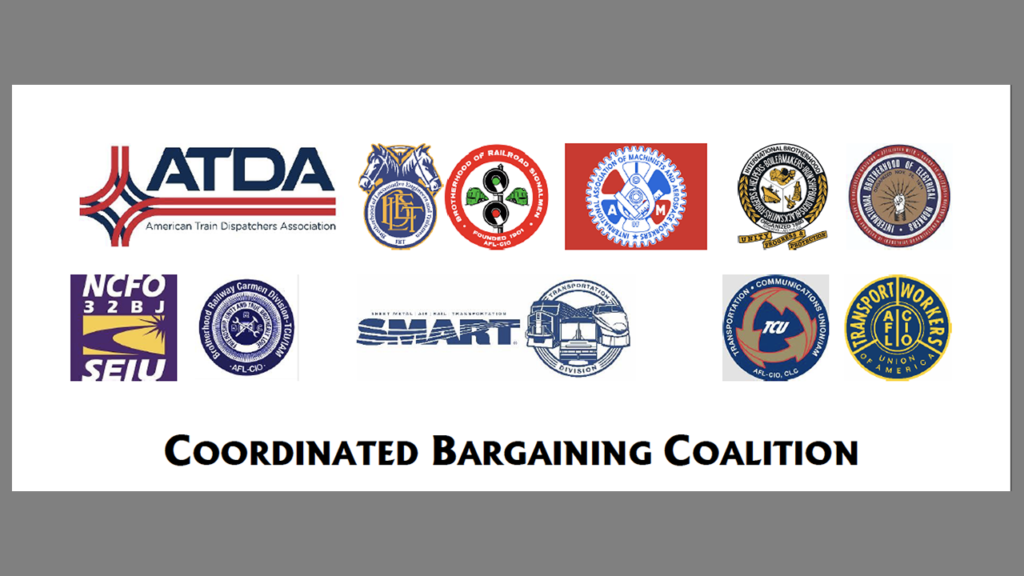
Union Solidarity
The Coordinated Bargaining Coalition (CBC) Unions in a Feb. 28 statement said it supported the MBWED/SMART-Mechanical bargaining coalition’s petition and agreed “that the parties are at impasse and should be allowed to move the contract dispute to the next steps of the Railway Labor Act’s negotiation process. Although the CBC Unions are also in mediation with their next NMB-mediated bargaining session scheduled in March, the CBC made it clear to the NMB upon entering mediation that there is little if any hope of reaching a voluntary agreement in light of the rail carriers’ refusal to bargain in good faith with any of the Rail Unions. Therefore, the CBC fully expects to be making the same request for a release, and once all Rail Unions are released from mediation, the CBC will stand alongside the BMWED/SMART Mechanical Coalition through the final steps of the Railway Labor Act negotiation process to bring the bargaining round to a successful conclusion.”
The CBC unions include the American Train Dispatchers Association (ATDA); the Brotherhood of Locomotive Engineers and Trainmen/Teamsters Rail Conference (BLET); the Brotherhood of Railroad Signalmen (BRS); the International Association of Machinists (IAM); the International Brotherhood of Boilermakers (IBB); the National Conference of Firemen & Oilers/SEIU (NCFO); the International Brotherhood of Electrical Workers (IBEW); the Transport Workers Union of America (TWU); the Transportation Communications Union / IAM (TCU), including TCU’s Brotherhood Railway Carmen Division (BRC); and the Transportation Division of the International Association of Sheet Metal, Air, Rail, and Transportation Workers (SMART–TD). Collectively, they represent more than 105,000 railroad workers covered by the various organizations’ national agreements.

